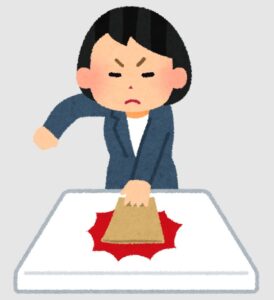管理人オススメコンテンツはこちら
「クレカも家もNG!?会社辞めたら待っている“リアルな落とし穴”」
〜前回のつづき〜
●サラリーマンがフリーランスになって驚く5つの事(つづき)
(4)本業以外の仕事が多い
サラリーマンは
会社内で役割分担をして働いてるので
自分の分担以外の仕事は
よく知らない事も多い訳ですね。
「私は営業だから人事の事は知らない」
とか
「私は経理だから製造の事を知らない」
とか
「私は仕入れ担当してるから
研究開発の事知らない」
みたいな。
大きな会社ほど
役割が細かく分かれている。
一方フリーランスは
全部の役割を
自分で担う必要が有るんですね。
例えば
ライターさんが独立して
フリーランスになったとしましょう。
文書さえ書いてればOK
という訳にはいかない訳ですね。
「こんな文書書けます!
いくらぐらいで下さい!」
なんて条件交渉したりとか
条件が決まったら
契約書作って
これで間違い無いですか?
と確認したり
成果物を納品したら
請求書を作って先方に送って
その後
ちゃんと入金されてるか
確認して
帳簿を付けて確定申告する。
文章を書く以外の仕事に
時間を取られる訳ですね。
ちなみに
中小企業庁の調査によると
フリーランスになる際に
直面した課題の一覧は
-1024x626.webp)
(出典:https://www.tokyofreelance.jp/housewife-freelance/)
やはりフリーランスの人は
営業の部分に困っている人が多い
という事ですね。
営業が苦手なフリーランスが
多いようですけど
どんな人でも
営業スキルは必須です。
サラリーマン時代は
目に入っていなかった業務に
フリーランスになってから
初めて気づくという事で
「会社って意外と良く出来てた
仕組みだったんだなー」
と感じる事も
フリーランスになると
有ると思います。
そういうふうに
思うかもしれない。
別れてから
元カノの良さに気づくみたいな。
「あの時付き合ってた時は
全然わからなかったけど
あんな事もしてくれてたんだ・・・」
とか
「あの娘いいこだったな・・・」
とか
「あの時の俺はあの娘の良さに
気づけなかった・・・」
とか
「俺の馬鹿・・・」
みたいな。
そういう瞬間も
有るかもしれないですね。
(5)サラリーマンの『社会的信用』って凄い
サラリーマンでいる間は
この社会的信用について
意識する事が少ないと思うんですね。
・クレジットカードを作る
・ローンを組む
・家を借りる
などサラリーマンは
ごく自然にこういう事が出来る。
でもこれは
社会的信用が無いと
出来ない事なんですよ。
フリーランスというのは
社会的信用が少ないんですね。
収入が不安定だと見られるので
サラリーマン時代の当たり前が
当たり前にならない訳ですね。
・クレジットカードの審査が通らない
・ローンを断られる
・住みたい家に住めない
などこういう事が
起きがちなんですね。
特に独立初期の頃は難しい。
ただ稼いでいるうちに
社会的信用はついてくるんですね。
最近は
フリーランスも増えてきてるので
会社員じゃない=信用出来ない奴
みたいな事は少なくなっていく。
まだまだどうしても
そういう一面も有るんですけど
でもちゃんと
数年実績を積み上げていけば
特にサラリーマンと
何も変わらないくらい
ちゃんと
社会的信用というのは
ついてきます。
・クレジットカードも作れる
・家も借りれる
といったように
特に困らなくなっていきます。
社会的信用が無くて困るのは
最初のうちだけですね。
〜〜〜つづく〜〜〜
Special Thanks college president Ryo.
●おまけ
≪≪perplexityちゃんによる文章まとめ≫≫
サラリーマンからフリーランスになると、まず驚くのは「本業以外の業務の多さ」です。
会社勤めでは役割分担がしっかりされており、自分の仕事以外はあまり意識せずに済みますが、フリーランスになると営業、契約、請求、入金確認、帳簿管理、確定申告など、すべて自分で行う必要があります。
特に営業スキルが重要で、苦手な人も多いですが、仕事を獲得し継続するためには欠かせません。
また、会社に属していたときの「社会的信用」の大きさにも改めて気づきます。
サラリーマンはクレジットカードやローン、賃貸契約などがスムーズにできますが、フリーランスは収入が不安定と見なされ、審査が厳しくなることが多いです。
しかし、時間をかけて実績を積めば、社会的信用も回復し、困ることは少なくなっていきます。
- https://zenn.dev/iwaseasahi/articles/f3b093fa8e9b70
- https://www.freee.co.jp/kb/kb-trend/too-many-freelancers/
- https://relance.jp/blog/0003/
- https://note.com/natsu_mi0519/n/n6fd4fc6a7e28
- https://qiita.com/xoxoxpien_neiqxoxox/items/3516e8028e2df2c17ffd
- https://note.com/papanavi/n/n9a9c184a6bf4
- https://freelance-life-partners.jp/1744/
- https://www.lancers.jp/magazine/21906
- https://www.lancers.jp/magazine/2620
- https://remolabo.co.jp/magazine/985/
≪≪Chat-GPTくんによる英訳≫≫
~Continuation from the previous post~
【5 Things That Surprise Office Workers When They Go Freelance (continued)】
(4) There’s a Lot of Work Outside Your Main Job
When you’re an office worker,
you work within a company where tasks are divided by role.
So, it’s pretty common not to know much outside your own area.
Things like:
“I’m in sales, so I don’t know anything about HR.”
“I’m in accounting, so I don’t know anything about manufacturing.”
“I handle purchasing, so I don’t know anything about R\&D.”
And the bigger the company, the more specialized the roles become.
But when you’re a freelancer,
you have to take on all the roles yourself.
For example, let’s say a writer goes independent
and becomes a freelancer.
It’s not like you can just write and call it a day.
You have to do things like:
“I can write this kind of content. How much will you pay?” → negotiating terms
Once conditions are set, prepare a contract and confirm with the client
After submitting deliverables, issue and send an invoice
Later, check if the payment actually came through
Keep your books and file your taxes
In other words, you end up spending a lot of time
on things other than writing itself.
By the way, according to a survey by the Small and Medium Enterprise Agency:
(Reference: [https://www.tokyofreelance.jp/housewife-freelance/](https://www.tokyofreelance.jp/housewife-freelance/))
One of the most common struggles freelancers face
is sales.
Many freelancers say they’re not good at sales,
but in reality, sales skills are essential no matter who you are.
So, freelancers often only realize after leaving their company
how many tasks they had been shielded from before.
And sometimes, they end up thinking:
“Wow, companies actually have a pretty well-built system.”
It’s a bit like realizing your ex was actually a great person after breaking up.
“I didn’t notice it at the time, but she really did a lot for me…”
“She was actually a good person.”
“I couldn’t appreciate her back then…”
“I was such an idiot…”
Freelancing can bring about those same kinds of moments.
—
(5) The Incredible “Social Credit” of Office Workers
While you’re employed as a salaryman,
you don’t usually think much about social credibility.
Things like:
Getting a credit card
Taking out a loan
Renting an apartment
These are all things office workers can do quite naturally.
But all of this actually depends on having social credit.
As a freelancer, your social credit is weaker.
Since your income is seen as unstable,
things that were once taken for granted as a company employee
suddenly aren’t anymore.
It’s common to run into things like:
Not passing credit card screenings
Getting denied for loans
Not being able to rent the apartment you want
This is especially tough in the early stages of freelancing.
However, as you earn steadily,
your social credibility builds up too.
And with more freelancers in society these days,
the idea that “not being an employee = untrustworthy”
is starting to fade.
Of course, some bias still exists,
but if you build a solid track record for a few years,
your social credibility becomes no different from that of an employee.
Eventually, you’ll be able to:
Get credit cards
Rent a place to live
without much trouble.
So in the end, the lack of social credibility
is only really a problem in the beginning.
Special Thanks OpenAI and Perplexity AI, Inc








